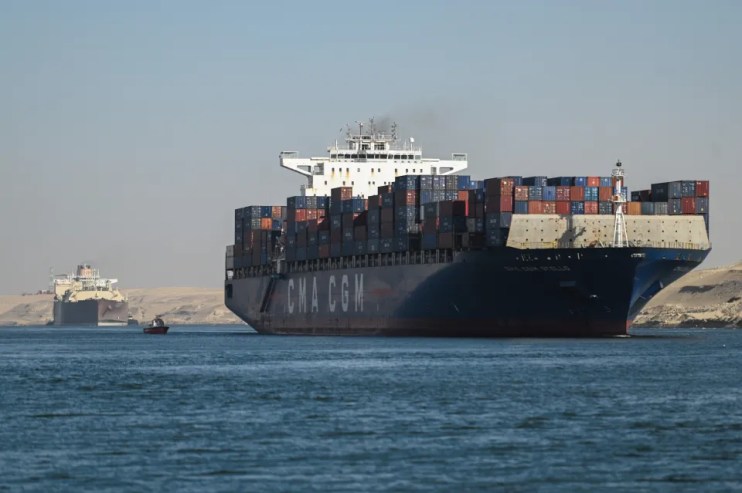Shipowners and traders gear up for legal clashes over Red Sea conflict

The shipping industry is gearing up for legal clashes over who is liable for the growing risk of transiting through the Red Sea at a time of heightened security fears.
Iran-backed Houthi rebels began attacks on the Suez Canal in November, disrupting what is one of the world’s most important trade routes.
Containerships and other vessels are being forced to divert around the Cape of Good Hope in response, adding around 14 to 20 days to journey times. The resulting rise in shipping costs and supply chain delays have sparked worldwide concern over the impact on inflation and the price of goods.
As the conflict unfolds, leading City lawyers told City A.M. they were fielding a growing number of queries from shipping clients, who are seeking clarification on their legal positions under current chartering arrangements.
Shipowners and the groups who lease vessels, which include commodity traders and oil majors, agree on charter party contracts to determine who is responsible for risks associated with a voyage.
Significant court action or maritime arbitration has yet to emerge from the enquiries, but lawyers are concerned it could be a sign of things to come.
Nick Austin, transportation lawyer at Reed Smith, said charterers had begun requesting counsel on whether they could force a ship to transit the Red Sea despite the risk. Shipowners, on the other hand, want to know if they can refuse without legal liability.
“We are currently fielding a large number of queries from our shipping clients seeking clarification on the legal position under charter arrangements,” he added, with the primary area of concern revolving around so-called “war risks” clauses.
“These vary from contract to contract, and can have markedly different implications depending on the wording.”
Feuds over late delivery, damage to cargo and demurrage, a charge paid to the owner of a chartered ship if cargo isn’t unloaded within the agreed timeframe, could also crop up in court as the conflict rolls on, lawyers warned.
“As routes are extended, there is less certainty that vessels will arrive in port within designated timeframes and that the cargo will be delivered in accordance with contractual terms between supplier and end purchaser,” Jonathan Moss, global head of transport sector at DWF, told City A.M.
“This will lead to an increase in claims for breach of contract and negligence and awards for damages,” he added, with the result being that liability insurance and other products become more costly.
The conflict in the Red Sea sharply escalated in January. China, the world’s biggest exporter, warned last week it was deeply concerned by developments, while the US and UK have begun targeted air strikes in the region.
Ultimately, if future litigation does arise, “it’s likely going to be based upon the risk assessment” and how that changes week by week, Menelaus Kouzoupis, a Dubai-based partner at Stephenson Harwood said.
He added that legal cases will be “incredibly fact-specific.” Vessels owned by or flying Israeli or NATO country colours may have a higher risk profile, for example, while other factors include where the ship has visited recently or its cargo type, which could be more vulnerable to different types of weaponry.
On Friday, the Martin Luanda, a tanker with links to the UK, was hit by a Houthi missile in the Gulf of Aden. The Iran-backed movement said it targeted the ship in response to “American-British” aggression and cited the group’s support of Palestinian oppression.
A spokesperson for the trade body, the UK Chamber of Shipping, said: “Decisions around whether to reroute away from the Red Sea have both commercial and legal consequences for vessel owners. Shipping companies will make individual decisions for vessels based on their calling history, ownership, cargo and the support available from military assets in the region.
“Where a vessel is diverted, as the risk of attack is significant, the Chamber encourages charterers to support their shipowners’ decision recognising that the safety of seafarers and vessels is the highest priority.”